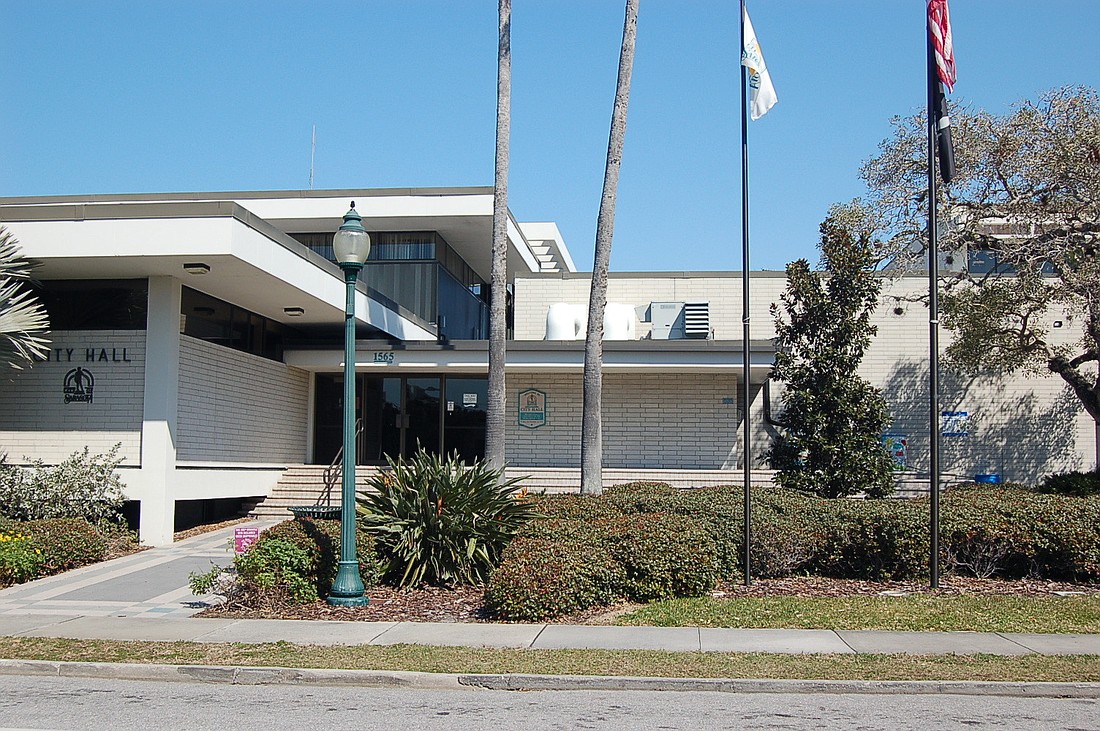- April 8, 2025
-
-
Loading

Loading

At a special meeting today, the City Commission — with the help of four lawyers — dissected aspects of a lawsuit regarding a possible Sunshine Law violation, the sixth such case brought against the city by the same group.
A lawsuit, filed by the nonprofit group Citizens for Sunshine, alleges that an Oct. 10 meeting between downtown merchants and city officials violated the state’s Government-in-the-Sunshine Law. The meeting, attended by Commissioners Suzanne Atwell and Susan Chapman, was held at a downtown restaurant to discuss homelessness issues, with the conversation allegedly covering the topic of the placement of a homeless shelter for Sarasota County.
Citizens for Sunshine alleged the presence of more than one commissioner at the meeting, along with the discussion of a topic the City Commission could eventually vote on, meant advance notice needed to be given that the meeting was being held. City Attorney Robert Fournier said there was one major question at the heart of the lawsuit.
"When is the city legally required by the Sunshine Law to give public notice in advance of a meeting at which two or more of the city commissioners are expected to be present?" Fournier said.
The prevailing sentiment from the defendants’ attorneys — Fournier and two lawyers hired by the city to defend Atwell and Chapman, who were named individually as defendants — was that the case was, at the very least, not a cut-and-dry sunshine violation.
Fournier said he thought there were several elements to consider. The Sunshine Law, he said, was designed to open up the discussions that were part of the deliberative process of a public body. In his interpretation, for something to qualify as a discussion, two or more members of that body would need to actively partake in that discussion themselves.
What Citizens for Sunshine is arguing, Fournier said, is that the presence of the commissioners at the meeting is enough to qualify as a discussion that would need to be held in the sunshine. To qualify, the city would have had to provide advance notice and keep minutes.
Fournier said Citizens for Sunshine cited previous rulings to support their argument, but that the facts in those cases wouldn’t necessarily make the findings applicable to the current suit.
“I believe they want to extend the holdings in those cases, rather than apply them,” Fournier said. “If I can’t feel safe in saying to the commissioners, ‘You’re good if you don’t say anything,’ it opens up this can of worms.”
Fournier also said there was a question about whether it was reasonably foreseeable that the topics discussed would eventually come before the city commission for action. According to minutes of the meeting in question, City Manager Tom Barwin brought up the placement of a homeless shelter, which Fournier said was problematic.
"When you are at a gathering where two or more commissioners are present, that has not been noticed to the public, you don't start talking about something that the commissioners are going to be voting on," Fournier said. "That's a problem."
Still, based on the invitation — which only referred to, more vaguely, "transient issues" — he argued it wasn't necessarily a meeting that required advance public notice.
Citizens for Sunshine made the city a settlement offer last Monday, but said the offer was only good for seven days. Fournier recommended they go past that deadline, since he wasn’t comfortable with several of the conditions of the settlement agreement. One such provision would require Atwell and Chapman to cover 50% of the plaintiff’s legal fees.
All of the commissioners but one agreed with that advice, and a “shade meeting” will be held in the near future to discuss the case outside of a public forum. Only Mayor Shannon Snyder objected, arguing the city should settle as quickly as possible, since that would cost the taxpayers the least amount of money.
Fournier said he could see if the plaintiff was willing to submit a different settlement offer, he could eventually make a counterproposal or the city could argue against the case in court. He felt the city would have a legitimate argument, should they decide to pursue the latter option.
Contact David Conway at dconway@yourobserver.com.